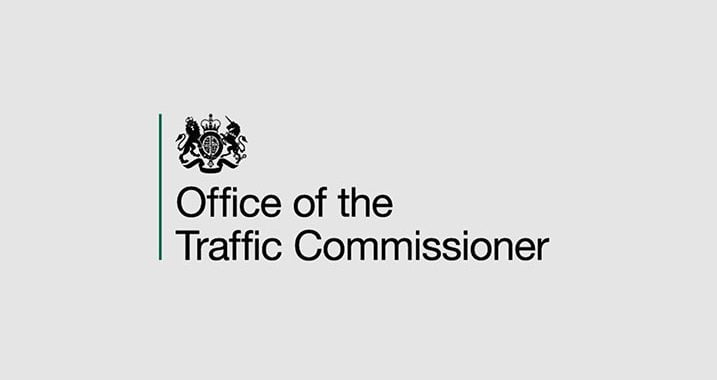To find out more about Project Pictogram, please click here.
The complete list of links to DVSA publications guides & forms
The complete list of links to DVSA publications guides & forms
I often get asked about which forms to use and what operator compliance publications the operator and driver should be utilising. So I’ve put together a rather helpful, regularly updated complete list of links to DVSA publications, guides, forms and tools for you. A one stop definitive place to find those all important DVSA publications, guides & forms, operator compliance legislation & other very helpful information.
Last update 24/07/18
Goods Vehicles Operators Guides
The Guide to maintaining roadworthiness 2018
https://www.safedrivingforlife.info/sites/default/files/guide-to-maintaining-roadworthiness.pdf
Guide to Goods Vehicle Operators Licensing 2011 (GV74)
https://www.gov.uk/government/uploads/system/uploads/attachment_data/file/193518/Goods_Vehicle_Operator_Licensing_Guide.pdf
Guide to graduated fixed penalties and financial deposits 2013
https://www.gov.uk/government/publications/guide-to-graduated-fixed-penalties-financial-deposits
GV262-03 Drivers’ Hours and Tachograph’s guide 2015
https://www.gov.uk/government/publications/rules-on-drivers-hours-and-tachographs-goods-vehicles-in-gb
Updates to Drivers’ Hours rules 4th March 2016
https://www.gov.uk/guidance/drivers-hours-goods-vehicles/updates
Working time regulations for mobile workers 2013
https://www.gov.uk/government/publications/working-time-regulations-for-mobile-workers
Staying legal heavy goods vehicle (HGV) drivers 2011
https://www.gov.uk/government/publications/staying-legal-heavy-goods-vehicle-drivers
Load securing: vehicle operator guidance 2017
https://www.gov.uk/government/publications/load-securing-vehicle-operator-guidance
HGV overloading: the basics 2013
https://www.gov.uk/government/publications/hgv-overloading-the-basics
The safe Operators Guide 2009
http://www.thetransportmanager.co.uk/wp-content/uploads/2015/07/vosa-safe-operators-guide.pdf
Categorisation of Defects 2015
https://www.gov.uk/government/publications/categorisation-of-defects
MOT testing guide (6th edition) 2004
https://www.gov.uk/government/publications/mot-testing-guide
VOSA Safe Operators Guide
https://tmconsultant.co.uk/wp-content/uploads/2017/03/vosa-safe-operators-guide.pdf
Working time regulations for mobile workers:
www.gov.uk/government/publications/working-time-regulations-for-mobile-workers
The role of the traffic commissioners
www.gov.uk/government/organisations/traffic-commissioners
A guide to representations, objections and complaints
www.gov.uk/government/publications/a-guide-to-making-representations-objections-and-complaints-goods-vehicle-operator-licensing
Senior Traffic Commissioner’s statutory guidance and statutory directions – How traffic commissioners approach the exercise of their statutory functions
https://www.gov.uk/government/collections/senior-traffic-commissioners-statutory-guidance-and-statutory-directions
Operator Compliance Risk Score (OCRS)
www.gov.uk/government/publications/operator-compliance-risk-score-guidance-ocrs-notes
International Road Haulage
www.gov.uk/the-essentials-of-international-road-haulage
Running a fleet of vans
www.gov.uk/government/publications/your-van-best-practice-guide
Towing small trailers guides
www.gov.uk/government/publications/quick-guide-to-towing-small-trailers
https://www.gov.uk/government/publications/towing-a-trailer-with-a-car-or-van
Recovery operations guide
www.gov.uk/government/publications/guide-for-recovery-operations
Horsebox and trailer owners
www.gov.uk/government/publications/guidance-for-horsebox-and-trailer-owners
Driver CPC overview
www.gov.uk/driver-certificate-of-professional-competence-cpc/overview
Driving licence categories
www.gov.uk/driving-licence-categories
Driving licence codes
www.gov.uk/driving-licence-codes
Guide to graduated fixed penalties and financial deposits
www.gov.uk/government/publications/guide-to-graduated-fixed-penalties-financial-deposits
Guide to vehicle immobilisation:
www.gov.uk/government/publications/guide-to-vehicle-immobilisation
Digital drivers cards (DQC)
www.gov.uk/government/publications/digital-drivers-cards-how-to-stay-within-the-law
Enforcement sanctions policy
www.gov.uk/government/publications/enforcement-sanctions-policy
Lorry types and weights:
www.gov.uk/government/publications/guide-to-lorry-types-and-weights
HGV inspection manual (2013 consolidated version)
www.gov.uk/government/publications/consolidated-hgv-inspection-manual-2013
HGV brake test
www.gov.uk/government/publications/preparing-your-heavy-vehicle-for-brake-test
Braking connections when using a trailer:
www.gov.uk/government/publications/understanding-your-braking-connections-when-using-a-trailer
Automatic slack adjusters – maintenance guide
www.gov.uk/government/publications/automatic-slack-adjusters-maintenance-guide
Dangerous and hazardous goods vehicles inspection
www.gov.uk/government/publications/guide-to-the-inspection-of-dangerous-and-hazardous-goods-vehicles
Seat belt installations
www.gov.uk/government/publications/guide-to-changes-to-seat-belt-installations
Maintenance software and computer storage of maintenance records
http://www.gov.uk/government/publications/a-guide-to-the-use-of-maintenance-software-and-computer-storage-of-maintenance-records
Individual Vehicle Approval manuals (IVA)
https://www.gov.uk/vehicle-approval/individual-vehicle-approval-manuals
Individual Vehicle Approval (IVA) for lorries help to get a pass
https://www.gov.uk/government/publications/individual-vehicle-approval-iva-for-lorries-help-to-get-a-pass
Individual Vehicle Approval (IVA) for vans help to get a pass
https://www.gov.uk/government/publications/individual-vehicle-approval-iva-for-vans-help-to-get-a-pass
Categorisation of defects
www.gov.uk/government/publications/categorisation-of-defects
HGV operator licensing forms
All operator licensing applications and changes are carried out now online. See refer to my guide on ‘how to apply for an operators licence’.
Other helpful Links
Stoneridge Tachograph Simulator – great tool for practicing the use of a digital tachograph
http://www.se5000.com/documentation.html
Find your nearest Authorised Testing Facility (ATF) or DVSA test station:
www.gov.uk/find-atf-vosa-test-station
Check MOT test history
www.gov.uk/check-mot-history-vehicle
HGV driver daily walkaround check poster
www.gov.uk/government/publications/heavy-good-vehicle-drivers-daily-walkaround-check
Moving on – Official advice and information for lorry, bus, coach and van operators and drivers
I hope you found the complete list of links to DVSA publications guides & forms, operator compliance legislation & other helpful info useful. If you did then please share by clicking the social icons below.
Or if you have any questions please do just get in touch. Here to share the knowledge!
Handheld mobile phone law update
The handheld phone law update is out and includes changes to the penalties you will now receive if you’re unwise enough to use your phone at the wheel.
This is a forward post from the DVSA
From 1 March 2017, the penalties for using a hand-held mobile phone while driving will increase to 6 points on your licence and a Ј200 fine.
THINK! has launched a new campaign encouraging drivers to put their phone in the glove compartment while driving to avoid temptation.
See THINK!’s website to find out more about the campaign.
Hiremech pass FORS Bronze audit renewal
Congratulations to Hiremech who pass their FORS Bronze audit renewal
We are very pleased to announce forklift hire aces, Hiremech pass FORS Bronze audit renewal this month! Although Hiremech passed their initial audit last year, the company has remained focused on improving their transport systems. The review process for the transport department has been ongoing which made preparing for re-application a smooth and easy process.
A few words from Brian at Hiremech….
“Nick is our transport consultant at Hiremech Ltd and has been working with us over the last 2 years. He provides ongoing advice on how to best maintain and improve our transport department. We are a successful Caterpillar forklift dealership based in North London, and with Nicks help and support, I believe year on year we have made massive strides in improving our transport department. On behalf of Hiremech Ltd I would like to thank Nick for helping us to ensure we passed our FORS bronze audit for another year! I will be working with Nick in the future, to help keep our transport fleet safe legal, and efficient.”
Thank you for your kind words Brian, a pleasure working with you and the Hiremech team.
If you need any advice or FORS help, then just get in touch. We’re here to share the knowledge!
Updated TMconsultant Driver CPC courses 2017 with a new Driver CPC course addition
Our updated TMconsultant Driver CPC courses 2017 with a shiny new course addition are here!
Great news! We have just updated our Driver CPC courses 2017 and added a great new course, Conflict Management. We’ve updated all our exiting courses with a couple of new additions including
- Extending the Vulnerable Road User section
- The addition of a brief overview of transmission and braking systems
- New media including the new DVSA films
- An updated daily inspection to include checking over new safety equipment if fitted
- Updated Health & Safety section including RIDDOR
We’ve also renewed our driver CPC course timings and how we programme to keep the content as exciting and fresh as possible.
New Conflict Management Course
Thanks to JK Transport Training Services for submitting this course for approval, it looks awesome. Here’s the content:
- Communication
- Human Resonances in conflict situations
- Asserting and reducing risks in conflict situations
- De-escilcating conflict in emotive situations
- Good practice following a conflict situation
This course helps you understand that changing what you do, what you say and how you say it will create changes in another person. You will learn:
- How communication can be used to solve problems and reduce the likelihood of conflict
- The factors that influence human responses in conflict situations
- How to assess and reduce risks in conflict situations
- How to communicate effectively and de escalate conflict in emotive situations
- Good practice to follow after conflict situations
If you would like to get some first class training in how to deal with conflict and gain 7 hours towards your Driver CPC, then this the course for you!
Please do get in touch if you would like to discus your Driver CPC options, here to share the knowledge!
Are you interested in become a Driver CPC trainer and run your own training centre? We are currently looking for likeminded industry folk to join our growing consortium of Driver CPC trainers. For more information visit here or get in touch.
Revision to the Driver CPC directive have your say
DVSA’s revision to the Driver CPC directive is here. It’s time to have your say!
The DVSA have released a survey regarding the revision to the Driver CPC directive. Interestingly, they have already provided top line proposals for us to comment on. However, there is an opportunity to air your views and thoughts via email if you wish. This will provided to you at the end of the survey.
Top line proposals to periodic training, are to:
- Prevent a repeat of training courses during a periodic training cycle
- Include road safety in at least one periodic training session
- Allow other elements of training to be included, such as disability awareness, dangerous goods transportation and animal transportation
Nothing too controversial here, yet they haven’t addressed issues concerning Driver CPC trainers and drivers alike specifically regarding timings…..read on.
Here’s my thoughts on the current proposals
- Prevent a repeat of training courses during a periodic training cycle – This doesn’t include remedial training but suffice to say this decision is currently easily manageable by between training provider, employee and employer
- Include road safety in at least one periodic training session – Of course it’s a good idea but I haven’t met any provider who doesn’t already offer a H&S module/course. Plus I haven’t met any driver who wouldn’t want to have training in H&S
- Allow other elements of training to be included, such as disability awareness, dangerous goods transportation and animal transportation – All elements related to transport should be included in the syllabus.
Timings and the 35/7 hour rule
I am surprised to see there is no mention on timings. In my opinion, the 35/7 hour rule, is a major issue and needs to be addressed. The question is, how do we ensure the drivers (and trainers) get the most out of Driver CPC and have taken in and digested the training provided?
Current thinking is to make a driver sit in class room for 7 hours and the trainer use questions, quizes and discussions to satisfy understanding. I have provided Driver CPC to delegates who have already had training in the subject matter previously taught and I can say (from experience) some drivers have only been able to demonstrate little or (in fact) no understanding of said subject matter from the previous session. This is because it is currently perfectly feasible to physically be present in a classroom, yet mentally not.
A driver can be present in the class room for 7 hours and simply choose not to engage. There’s not much a trainer can do about it. Obviously, I’d like to think non of my delegates have fallen into this bracket but I can’t say for sure. Further more, there’s no way to measure how successful Driver CPC is or even if it’s working at all.
The Solution
Have in place a multiple choice test at the end of the course, simple! This does beg the question, would drivers prefer to sit for 7 hours or take a small test at the end? Even if the drivers did opt for the 7 hours (which I doubt), this also flies in the face of current understanding of the learning method.
We take a test at the end of our GCSEs (O levels in my day!), we take a test at the end of our B class driving instruction, we take a test at the end of our Class 1/2, we take a test to become a Transport Manager. Ok you get the point, we take tests to demonstrate we have understood the information being taught.
If the only reason for not testing at the end of Driver CPC is because the perceived notion is drivers won’t like it, then this is not only a huge assumption, it’s patronising and unreasonable relative to current understanding in the learning process.
The other great advantage to having a test in place, it would eradicate rogue training providers finishing early for the day. It just wouldn’t be a problem anymore and thus ensuring drivers will receive the full training they have paid for and deserve.
There are details like, management process, what happens if a driver doesn’t pass etc. However, these are just detail which are easily worked out. In case you’re wondering, I do have the complete solution but for reasons of blog interest and general interest I shall keep this post to the point.
Now is the time to look at how Driver CPC works in more detail and the opportunity to use logic to make DCPC more workable. Have your say in the Driver CPC directive review NOW.
How do I have my say?
Go here to complete the Driver CPC directive survey.
If you need any advice regarding Driver CPC training or would like to become an Driver CPC Affiliate Consortium Member, then just get in touch. We’re here to share the knowledge!
Clarks of Amersham pass FORS Bronze standard audit
Big congratulations! Removal and storage specialists Clarks of Amersham pass FORS Bronze standard audit with flying colours in one month! This is a massive achievement and is testament to their compliance commitments.
Most of the help was carried out remotely with the assistance of Chiltern Development Training who assisted on site. With a driver training day, telephone and email support prior to the assessment Clarks demonstrated their commitment right from the start. They applied themselves from the outset taking on board all the advice and guidance necessary to pass their FORS audit first time, which took place on 12th January 17. So that’s just over 4 weeks to gain their Bronze award!
A few words from the MD…..
“At Clarks of Amersham we constantly strive to improve our customer service and as such need to keep our staff trained and motivated. This is not always the easiest of tasks and often difficult to deal with in house, so we decided to employ the services of an outside agency. After reviewing several companies we elected to go with TM Consultants. This has proved to be a great choice for our business. They have helped us re-write policies and manuals keeping us bang up to date with the latest legislation. They have even helped us to obtain the FORS bronze standard, something we could not have achieved without their input. We look forward to working with them further in the coming months and years.”
Many thanks to Michael and the team, it was a pleasure working with you and looking forward to the future.
If you need any advice or FORS help, then just get in touch. We’re here to share the knowledge!
Updated guidance from the Traffic Commissioners office
Forward posts with updated guidance from the Traffic Commissioners office.
Following consultation with stakeholders and industry, the Senior Traffic Commissioner’s statutory documents have been updated. The revised documents, which are available online, explain the legal basis and the way traffic commissioners approach the exercise of their statutory functions.
Detailed information on legislation for goods and passenger carrying vehicles is provided in the guidance, as well as other relevant legislation and case law. The revised guidance details a range of topics including; good repute and fitness, finance, transport managers and operating centres.
A short summary of the main changes can be read below.
This guidance sets out the requirements for satisfying good repute or fitness. The update gives better guidance on what’s relevant to your repute or fitness as an operator, and who is fit to fulfil conditions and undertakings on your licence. It also includes guidance on the approach licensing and compliance staff should take when acting on behalf of individual traffic commissioners, to determine good repute and fitness.
Financial Standing
On 1 January 2017, revised financial standing requirements will come into force for standard national and international operator licences.
Standard operator licence
| Vehicles | Previous rates | Rate from 1 January 2017 |
|---|---|---|
| First vehicle | £6,650 | £7,850 |
| Additional vehicles | £3,700 | £4,350 |
The rates are calculated each year against the Euro exchange rate as required under EU Regulation 1071/2009.
In recent years, the amount of money for standard licence holders has reduced. The levels are increasing because of a change in the exchange rate.
Restricted operator licence
There will be no change to the finance which must be available to support restricted licence applications and licences.
| Vehicles | Rate |
|---|---|
| First vehicle | £3,100 |
| Additional vehicles | £1,700 |
Driver conduct
This guidance covers vocational driver conduct matters that are referred to traffic commissioners by the Secretary of State for Transport (through DVLA). The update provides more detailed guidance and contains a number of case studies, which you can use to train and educate drivers.
Decision making
This document explains how commissioners make their decisions, including calling operators to public inquiry. Changes to the document will lead to less serious cases being taken out of public inquiry listings. This is so that the commissioners’ tribunal resources can be targeted at the most seriously non-compliant operators, transport managers and drivers.
Delegations to staff
This publication sets out matters that traffic commissioners routinely delegate to staff acting on their behalf and deputy traffic commissioners. The updates include information that allows traffic commissioner staff to make more decisions on behalf of traffic commissioners.
If you’d like to learn more you can view all the revised documents here.
Apply & manage your vehicle operator licence online!
So the office of the Traffic Commissioner and the DVSA has finally caught up with the 21 century and it is now possible to apply & manage your vehicle operator licence online!
For the first time, online applications for vehicle operator licences can now use the shiny new online system, replacing the Operator Self Service System.
Mr Kevin Rooney, Traffic Commissioner for the west of England and for the northeast of England stated that “We wanted to change the system because we recognise that the old system isn’t very user friendly, we want to encourage operators to do things digitally and to transact digitally both with government and with us”.
Main addition
The main addition to the new system is a service allowing new operators to apply for a licence online. Existing licences can still manage their licence by adding more vehicles, applying to increase vehicle limits and adding a transport manager, so no change there. Existing users of the Operator Self-Service System can log in to the new service using the same username and password. For more information, and to access the new service, visit the .gov website. To apply go here.
If you would like more information about Managing your Operator Licence, or our Operator Licencing, services, please don’t hesitate to get in touch. Here to share the knowledge!
Since the launch of the Manage Your Operator Licence, I have written a new updated post. You can view that post here.
Killer drivers to face life sentences
Forward post from the DVSA.
Dangerous drivers who kill are set to face life sentences, under plans put forward by ministers.
Dangerous drivers who cause death by reckless driving, speeding, street racing or distracted by using a mobile phone could now be treated in a similar way to those charged with manslaughter.
This also applies to people under the influence of alcohol or drugs.
Give your views
The Ministry of Justice wants your views on whether the current maximum penalties should be increased. Give your views by 1 February 2017.
Other proposals include:
- creating a new offence of causing serious injury by careless driving with a maximum sentence of 3 years
- increasing minimum driving bans of those convicted of causing death
In 2015, 122 people were sentenced for causing death by dangerous driving with a further 21 convicted of causing death while under the influence. While the UK has one of the best road safety records in the world, deaths and injuries still cause devastation to victims and their families.









